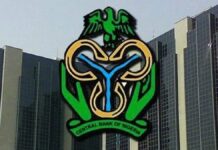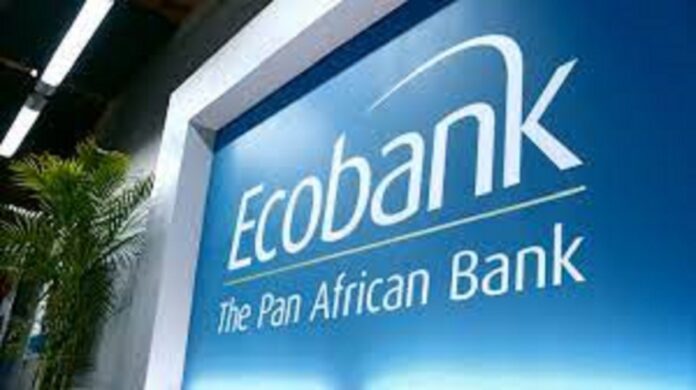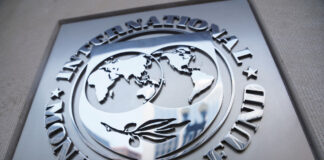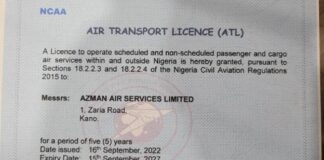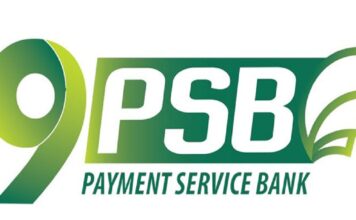GCR Ratings Downgrades Ecobank Nigeria
GCR Ratings (GCR) has downgraded Ecobank Nigeria Limited’s national scale long issuer rating to BBB-(NG) from BBB (NG) and affirmed the short-term issuer rating of A3(NG); with the Outlook revised to Evolving from Stable.
According to GCR, the rating downgrade on Ecobank Nigeria Limited reflects sustained pressures on capitalisation, exacerbated by the adverse impact of the naira devaluation.
The emerging market rating agency also stated that Ecobank ratings also balance an elevated risk profile against a sound funding structure and good competitive position.
Positively, the ratings are uplifted by the ongoing financial and technical support from its parent, Ecobank Transnational Incorporated (ETI), it added.
Ecobank Nigeria’s capitalisation assessment is a major ratings weakness, reflective of the consistent decline in capitalisation metrics over the last three years.
The bank’s regulatory capital adequacy ratio (CAR) registered at 10.03%, the borderline of the minimum threshold of 10% in June 2023 and 11.4% in September 2023.
Similarly, the GCR core capital ratio declined to 13.1% as of 30 September 2023 versus 14.5% in December 2022 and 16.4% in the preceding year following the bloating impact of the naira devaluation on the risk-weighted assets.
According to the rating note, this is expected to remain within the low range of about 13% of GCR assessment in the near term.
Furthermore, the loan loss reserve coverage is considered low, covering a moderate 51.0% of impaired loans as of 30 September 2023 from 76.4% in December 2022, according to the rating note.
Although the bank’s capitalisation metrics are vulnerable to a further weakening in the local currency, a planned capital injection by the Group and other capital considerations could support the core capital ratio at about 17% over the next 12-18 months, GCR said.
The bank’s risk profile remains weak, despite the improvement in the non-performing loans (NPL) ratio to 6.9% in December 2022 versus 16.3% in 2021, following the disposal of NGN93.3 billion worth of impaired loans through a sale and purchase agreement with ETI via a resolution vehicle in 2022.
However, the NPL ratio deteriorated to 8.7% as of 30 September 2023 due to the macroeconomic-induced credit migrations as well as the impact of naira devaluation, the rating note added.
In addition, the percentage of IFRS 9 stage 2 loans to gross loans remained high, averaging about 29% over the last five years, and largely constituting legacy foreign currency syndicated loans to the oil and gas sector.
Analysts said while most of these stage 2 loans have been restructured, the exposures are susceptible to credit migrations amidst macroeconomic constraints, thus heightening credit risk.
For Ecobank, concentration risk has persistently remained high, with the 20 largest obligors accounting for 71.3% of gross loans as of 30 September 2023 versus 64.3% in 2022, six of which were in breach of the single obligor limit of 20% of shareholders’ funds.
“Although the bank currently benefits from regulatory forbearance, we expect these breaches to persist barring any major remedial actions”.
Also, the impact of naira devaluation resulted in an increase in FCY exposures to 64.0% of gross loans at end-September 2023 from 53.1%, with most of the FCY facilities extended to the oil and gas sector, which constituted 45.0% of the loan book as of 30 September 2023
This represents an increase when compared with 43.8% in 2022 and 38% in 2021. The bank’s ongoing initiatives to convert some legacy FCY loans to naira may moderate the proportion of FCY loans over time, GCR said.
Overall, GCR Ratings said it expects Ecobank Nigeria’s gross loans to remain highly vulnerable to adverse changes in the macroeconomic environment, particularly given the current mix of the loan book.
Ecobank Nigeria’s competitive position assessment balances its moderate franchise strength in the Nigerian banking sector against the Group’s dominant Pan-African presence.
Specifically, the bank’s membership in ETI provides some strategic advantages, giving it access to trade and payment opportunities across 33 African countries, thereby availing customers of adequate payment gateways.
With a balance sheet size of NGN3.8 trillion (USD4.9 billion) as of 30 September 2023, Ecobank Nigeria accounted for approximately 4.0% of the Nigerian banking resources and compares favourably with tier 2 peers.
Conversely, the bank’s earnings remain weak, with key profitability indicators (ROE, ROA, and NIM) lagging those of its peers.












